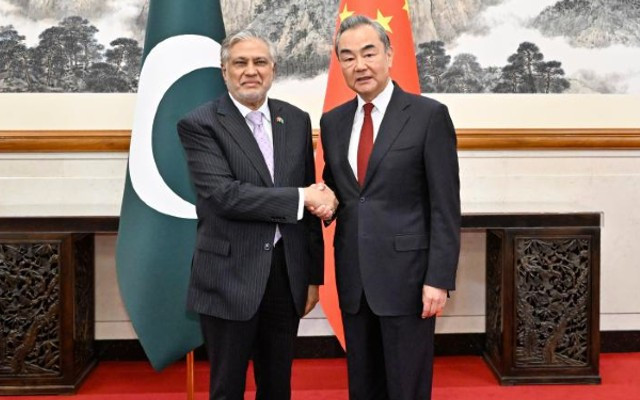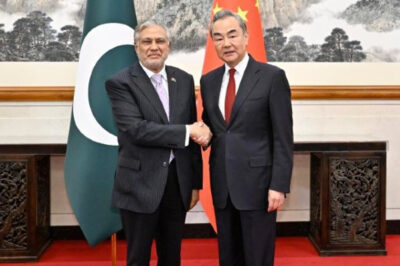
In a significant development for regional connectivity, China, Pakistan, and Afghanistan have agreed to extend the China-Pakistan Economic Corridor (CPEC) into Afghanistan. This move aims to bolster economic ties and infrastructure development across the region, with the potential to reshape trade dynamics and geopolitical alignments.
Strategic Expansion of CPEC
The decision to include Afghanistan in the CPEC framework was formalized during a trilateral meeting held in Beijing, where Chinese Foreign Minister Wang Yi, Pakistani Foreign Minister Ishaq Dar, and Afghan Foreign Minister Amir Khan Muttaqi convened. The expansion is seen as a strategic step to enhance economic integration and facilitate smoother trade routes between the three nations.
Economic Opportunities for Afghanistan
For Afghanistan, this inclusion presents an opportunity to revitalize its economy, which has faced challenges due to decades of conflict and political instability. By joining CPEC, Afghanistan aims to attract foreign investment, improve infrastructure, and become a central hub for regional trade. The initiative is expected to create job opportunities and stimulate economic growth within the country.
China’s Strategic Interests
China’s involvement in the expansion aligns with its broader Belt and Road Initiative (BRI), which seeks to enhance global trade routes and infrastructure. Afghanistan’s rich reserves of natural resources, including lithium, copper, and rare earth minerals, are of particular interest to China. Access to these resources could support China’s growing demand for materials essential in manufacturing electronics and renewable energy technologies.
Pakistan’s Role as a Facilitator
Pakistan plays a pivotal role in facilitating the extension of CPEC into Afghanistan. By leveraging its established infrastructure and diplomatic relations with both China and Afghanistan, Pakistan aims to strengthen its position as a key player in regional trade and politics. The initiative is also seen as a means to foster closer ties with Afghanistan, potentially leading to enhanced stability and cooperation in the region.
Implications for India
India has expressed concerns regarding the expansion of CPEC into Afghanistan, primarily due to the corridor’s route passing through Pakistan-occupied Kashmir, a region claimed by India. Indian officials worry that the extension could further consolidate China’s influence in the region and alter the balance of power in South Asia. Additionally, India’s investments in Afghanistan, particularly the development of the Chabahar Port in Iran, may face challenges as new trade routes are established.
Challenges Ahead
While the expansion of CPEC holds promise, several challenges must be addressed to ensure its success. Afghanistan’s political stability remains a critical factor, as the country continues to navigate governance issues and security concerns. Furthermore, the implementation of large-scale infrastructure projects requires substantial investment and coordination among the involved nations. Overcoming these hurdles will be essential for realizing the full potential of the expanded corridor.
Conclusion
The inclusion of Afghanistan in the China-Pakistan Economic Corridor marks a significant milestone in regional cooperation and infrastructure development. While it presents opportunities for economic growth and enhanced connectivity, it also introduces new geopolitical dynamics that will require careful management. As the project progresses, the involved nations will need to collaborate closely to address challenges and ensure that the benefits of the expanded corridor are equitably distributed.








































Leave a Reply